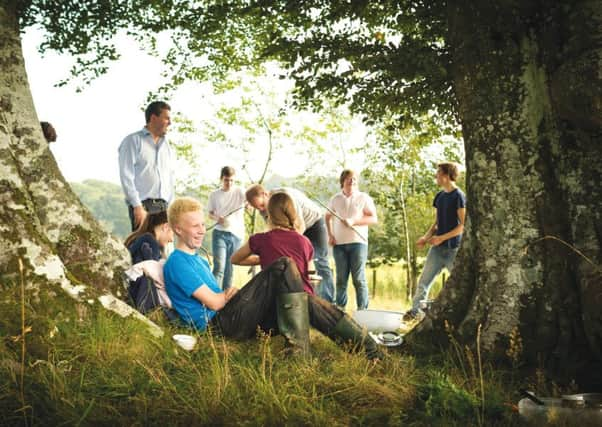Independent Schools Guide: Prioritising pupil pastoral care


Scotland’s independent schools sector prides itself on an unrivalled provision of pastoral care, which creates warm, fun-filled home-away-from-home establishments.
Principal at Erskine Stewart’s Melville Schools in Edinburgh, Linda Moule says: “It’s all down to the boarding staff who provide a family environment that makes boarders feel supported and welcome. We have someone in charge of boarding and tutors as well as a resident house matron on site and caterers, and all the staff looking after our boarders are highly experienced.
Advertisement
Hide AdAdvertisement
Hide Ad“They can use Skype and WhatsApp, so they are not being sent away and never speaking to their families.”
Of the Scottish Council of Independent Schools (SCIS) membership, 19 are boarding schools, with more than 2,270 boarders in attendance, about 35 per cent of whom come from 70 different countries. But irrespective of how close by or far away a pupil’s family is based, each individual is cared for, comforted and supported.
Girls’ boarding houses will have a housemistress and boys’ houses will have a housemaster, whose role is similar to a parent. These staff ensure house rules and standards are observed, supervise and arrange activities, make sure pupils attend classes, provide advice and counselling and take children to social activities.
This level of care is not exclusive to boarding pupils of course. The High School of Dundee, for instance, has links with the city’s Child and Adolescent Mental Health Services team. Dr John Halliday, rector of the school, says: “The pastoral welfare of pupils is absolutely key, so we have the integrated curriculum, which is pupil-centred and includes the academic programme, co-curricular programme, and the pastoral programme.
“Every teacher here is a guidance teacher in some form or another as we are all here to look after, nurture and care for each child. We have our pastoral team which consists of guidance teachers and the learning skills team, who provide additional support for those who need it.”
That care starts from day one of a child’s education. The Compass School in Haddington, East Lothian, is an independent primary school and nursery, which prepares children aged up to the age of 12 for schools of all shapes and sizes.
Mark Becher, its headmaster, says: “We just did a survey with parents and every one of those parents stated the reason they enrolled their child here is because of the caring, nurturing family environment that the children enjoy here.
“That is down to the high level of pastoral care we offer – we follow through with families in the evenings to check that a child is okay; we liaise with parents on a daily basis, particularly if parents are going through a particular struggle of their own, and we work closely with the family to provide support.”
Advertisement
Hide AdAdvertisement
Hide AdEach school is subject to inspections by Education Scotland, while boarding schools and nurseries must be registered by the Care Inspectorate. All teachers must also be registered by the General Teaching Council for Scotland.
Nevertheless, Dr Ian Long, headmaster at Albyn School in Aberdeen, says: “While all schools endeavour to be compliant with child protection regulations and Getting It Right For Every Child procedures, the reality is that most parents are concerned every bit as much about the care provided for their children as they are about regulatory compliance.
“As an all-through school looking after children aged between two and 18, with small numbers of older boarders, Albyn has a wealth of trained people involved in caring for young people. From the daily feedback given to parents in the nurseries, to ensuring form teachers talk with their upper school pupils in a one-to-one setting, the school seeks to learn about pupil anxieties and equips them with strategies.
“Having a well-thought out, up-to-date and age-appropriate personal and social education programme, young people are supported through childhood and into adolescence with an understanding of how they need to relate to each other, care for themselves and where to go to get that help.”
With eight pupils for every teacher on average, according to SCIS, independent school teachers are able to dedicate more time and support to each pupil.
At Austin Friars School in Cumbria, each child is known well by all members of staff. Headmaster Matt Harris says: “It’s a great privilege to know each child and I sit in on post-report analysis meetings where we go through and look at the grades of every child at the school so we have an idea about their level of application in all subjects.
“That is invaluable when talking to either a child or their parents and means that the pastoral system in the school is very much centred on small year groups of no more than 45.
We also have a fully-qualified psychotherapist and an in-school councillor who is qualified to train others as well as a mindfulness programme which is geared up for nurturing and pastoral care.”
He adds: “One of the positives of being a small school is definitely the fact that every child is known well by every teacher.”